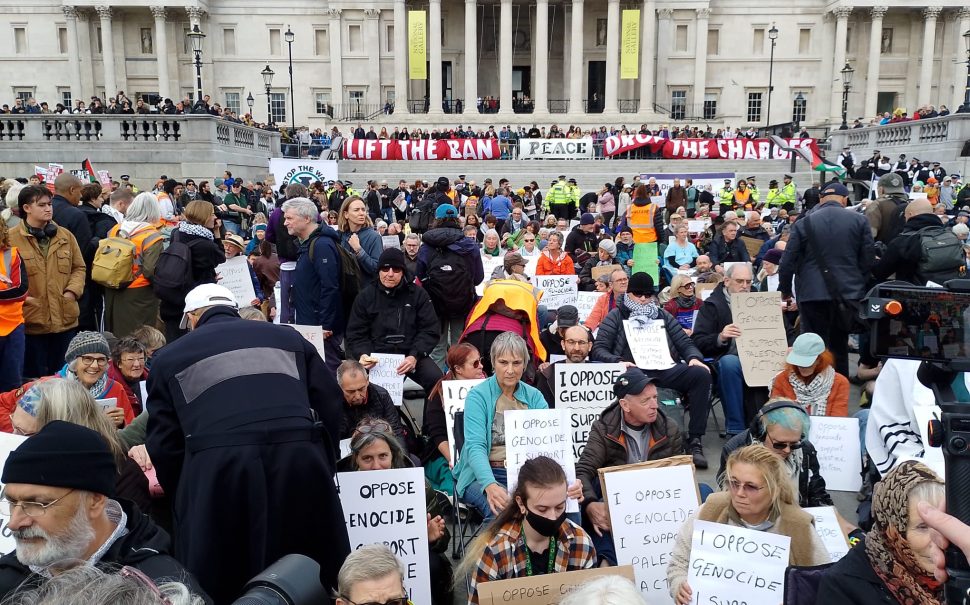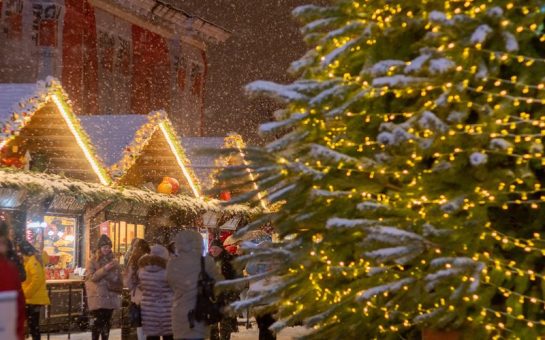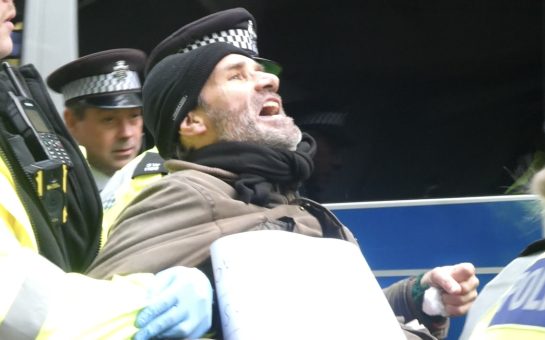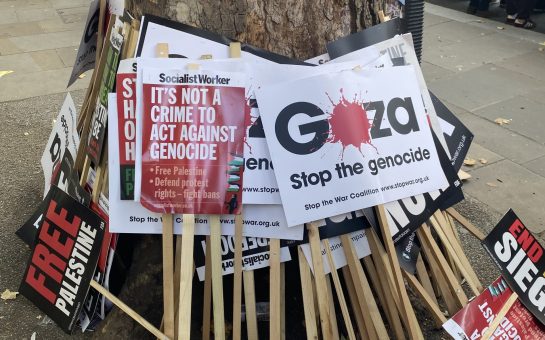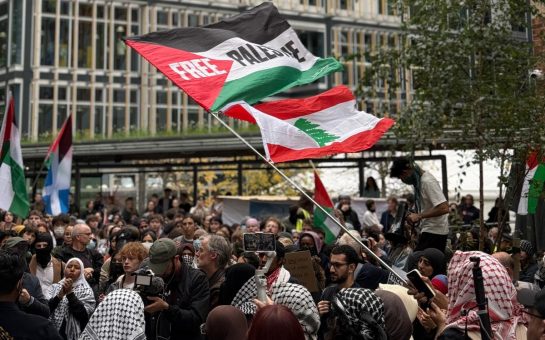Almost 500 people were arrested in Trafalgar Square on Saturday at a demonstration opposing the proscription of Palestine Action.
The peaceful protesters – who held signs declaring their support for the organisation proscribed by former Home Secretary Yvette Cooper in July – were arrested for offences under the Terrorism Act and removed from the square throughout the afternoon.
Event organisers Defend Our Juries had already coordinated numerous ‘Lift The Ban’ demonstrations after lambasting the government’s decision to brand Palestine Action a terrorist organisation.
More than 1,500 people had been apprehended for displaying support for Palestine Action before Saturday’s protest, and participants of the sit-in knew they faced a high risk of arrest.
Serena, a 64-year-old placard-holder from East Sussex, explained that her despair over the ongoing conflict in Gaza – labelled a genocide by a UN commission – motivated her to take a stand.
She said: “I know that I can now be ‘a terrorist’, so it will have huge implications for me, but I’m prepared to make that sacrifice.
“I can’t find another way to express my absolute devastation about our government being complicit with the Israelis and allowing this genocide to happen.”
Defend Our Juries claims that more than 2,000 people have now been arrested as part of the ‘Lift The Ban’ campaign, including the 488 protestors arrested on Saturday.
Throughout the demonstration, placard-holders sat largely in silence as they waited for the police to remove them from the square.
Many refused to walk out voluntarily, requiring groups of police officers to carry them to fleets of nearby vans.
Fighting back tears, Serena added: “To have quiet dignity, to make it like a peaceful vigil for all the people of Gaza, is the best way.
“And then it puts the police in a difficult situation, because they’re arresting all these gentle people who just need to express their anguish at the situation. And now I’m getting very emotional.”
On the periphery of the sit-in, hundreds more demonstrators gathered to offer their support and protest against Israel’s attacks on Gaza.
Situated by Nelson’s Column, Mark Etkind, respresenting a group of holocaust survivors and their descendants campaigning against the conflict, held a banner proclaiming “Against Gaza Genocide” while another of the group’s members read out the names of Palestinians who have been killed since 7 October 2023.
Etkind, the son of a holocaust survivor, explained that he had been to many of these rallies before.
He said: “Unfortunately, the genocide is continuing. So those of us with a Jewish background who oppose it feel absolutely compelled to come on these demonstrations.
“The hope is to break the back of the British government and its resolve to support the genocide.
“It’s generally a pleasant atmosphere amongst the demonstrators – it only gets grim when the police come in and insist on arresting people who are doing nothing except sitting down and holding a placard.”
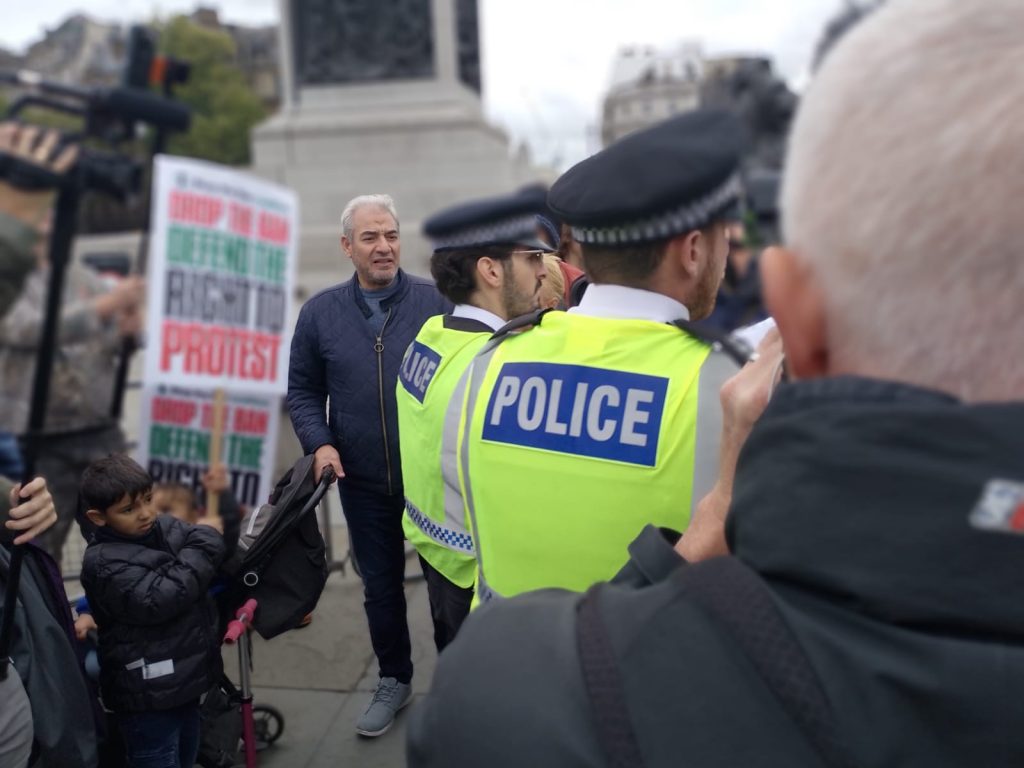
Home Secretary Shabana Mahmood had called for organisers to cancel Saturday’s protest in the wake of Thursday’s terror attack at a synagogue in Manchester, calling similar protests “dishonourable” and “Un-British”.
Dr. Jeffrey Vernon, a teaching fellow at Imperial College carrying a placard that read “Jews Against Ethnic Cleansing”, disagreed with Mahmood’s assessment.
He said: “I wish everyone would get off this horse they’re riding which says ‘if you’re supporting peace in the Middle East, you must be some sort of anti-Semite’.
“I’ve come today partly because I am Jewish, and I believe that what’s happening in Israel goes against the Jewish values I was brought up with.
“There’s no reason why you cannot mourn the two dead people in Manchester and, at the same time, campaign for peace in the Middle East, for Palestinian liberation, and for an end to British support for Israel.”
In the north-east corner of Trafalgar Square, Quaker societies and trade unions stood to observe the demonstration and support its participants.
Liz Wheatley, Branch Secretary of Camden UNISON, expressed concern that the proscription of Palestine Action could lead to greater losses of civil liberties if left unchallenged.
She said: “People in a non-violent direct-action group have been outlawed using terror legislation, and I think that’s a really dangerous precedent. If they use it on one group, it has the potential to be used on others.
“We know how fragile our rights are in society, so it’s important that we come out and defend our right to protest.
“Throughout history, people have challenged bad laws, and that’s what these people are doing – they’re fantastically brave to do it.”
Yesterday, Mahmood announced plans to grant police forces the power to limit repeated protests such as Saturday’s demonstration, and potentially ban individual protests completely.
A legal challenge to the proscription of Palestine Action will be heard in the High Court in November, and many of Saturday’s demonstrators believed the outcome will have ramifications beyond the protest group.
Vernon said: “If the ban on Palestine Action is upheld, I think we’ll have learned something about the way the British state, almost at the stroke of a pen, can outlaw campaigns it finds embarrassing or inconvenient.
“And then everyone had better watch out.”
The Home Office was contacted for comment.
Feature image credit: Ajay Smith
